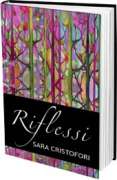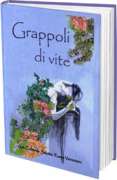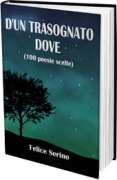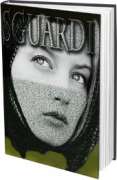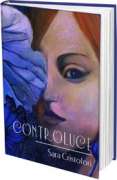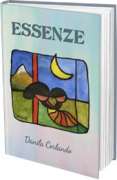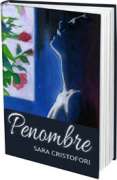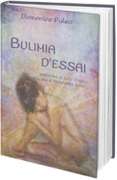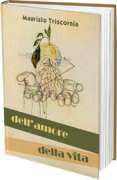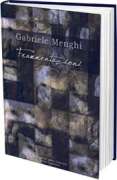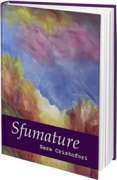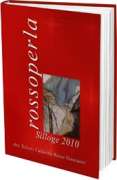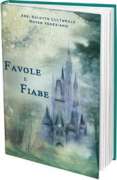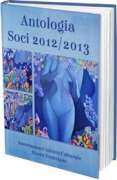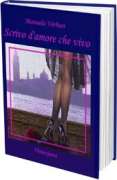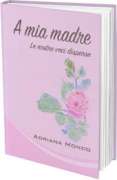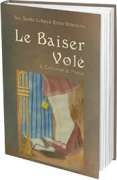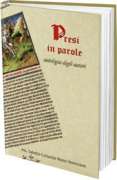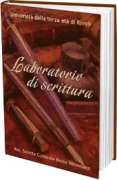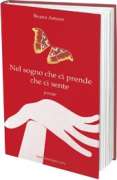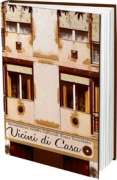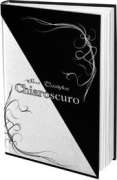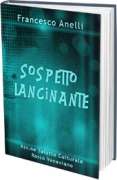THE VIOLIN
As a young boy I received a present from my Godfather, it was a violin.
When I was at College in Cremona, I had a brilliant Math Professor. He was eccentric and untidy; He told us he was the last in a family of violin makers.
In the Army I became friend with another officer. He was the last Count of Monterosa. Their castle had been destroyed during the last days of The Second World War, and they lost their possession by the hands of the new installed Yugoslav Regime.
These three facts had been the foundation to create this story.
I am a violin maker by profession. My family has crafted violins for the past two hundred years in the city of Cremona. I am the last of the family in this profession and have no one to hand over the secrets of violin-making.
I own a valuable Guarneri, which came to me unexpectedly. This instrument had shared with his previous owner, incredible secrets of love and hate, desires and disillusions, friendships and treacheries.
It was summer, and I was in Budapest. When I visit this city I go to Balatan, a district notorious for its taverns where one can drink the best Tokay wines. I looked around, peering through the front windows and courtyards, searching for a not overcrowd tavern. I opted for the one displaying a sign at the doorstep, offering company, good wine and music.
This night, I was ready to return to my hotel when a musician entered the tavern. He was tall, sporting a long, thick, black mustache, as fashioned in the days gone by.
In great contrast he had long white hair secured in a ponytail. He was unshaved with bristles a least a week old, and he was of an untidy appearance.
He wore a coachman oilskin cloak, and under he had an old fashion frilled shirt. His attire was completed with unpolished, shabby, riding boots. It looked as if his garments had never been laundered, apart from the clemency of some occasional rain-shower.
This new musician stood taller over the podium erected at the end of the tavern, and with a strong and sarcastic baritone voice addressed the attention of those present.
He bowed theatrically with,
“You are very lucky indeed tonight, to have me as your entertainer. Seldom for the cost of a few forints, that your good heart will determine, will you enjoy such a talented violinist.”
Then, he positioned his instrument on his shoulder, and started to play requested popular tunes of Strauss and Lehar. Soon the people became rapt by his music. They offered him drinks, and asked for new tunes which he always executed masterfully.
I was aware of his virtuosity, but mostly, listening to the pure notes from his violin, I recognized the unmistakable voice of it. Only a Guarneri can produce such complete, full rounded sound. But how could such a fine instrument be owned by such a derelict? What plausible connection existed between the owner and his instrument? Did he know the real value of his property?
He was certainly a fine musician, but why then, wasn’t he performing in the well known theatres around the world? What mysteries were behind this man?
My thoughts were brusquely interrupted. Our violinist was moving among the tables creating Gypsy melodies for people sitting around. He enjoyed playing cupid to the lovers, and the seducer to the lonely women. But he never forgot to collect the few coins donated to him, and never refused any drinks so generously offered to him.
He returned to the stage, bowed, and called the audience to attention, saying,
“I’m going now to offer my services to the higher bidder. On a negotiable price I will play the requested piece, the most unusual and difficult you can think of.”
He looked around the crowd. He refused many offers on matters of money or because such music wasn’t prized enough to such a virtuoso.
He turned his attention to me and said,
“You seem to be a cultured person, a real connoisseur of good music. I’m challenging you, Sir. Could you give me the most impervious piece of music and your bid for the privilege?”
I was silent for a few seconds and then said,
“I would gladly listen to Paganini’s Capricci.”
This is an unusual piece, hardly selected even by the famous violinist, for the difficulties in it. I though that with such request, I would have disarmed the musician, but I was wrong. He bowed,
“Finally we have a connoisseur in front of us. You deserve a toast from all us for this fine request. But what is your offer to listen to such a masterpiece? ”
“Would a ten-thousand forints be enough?” I responded
I considered that a generous offer. He became grave and talking toward the audience he muttered
“Ten-thousand? Did he say ten-thousand forints?”
Visibly he was offended, he looked at the denigrating conditions he was reduced to and I felt the many thoughts going through his mind.
Finally he turned his back to me, and he concentrated. He raised his violin to his shoulder and the bow magically extricated the most melodious notes, which he had played for such a long time. It was the perfect execution that the finest musician can conceive.
He certainly was a great artist. My thoughts took me back many years, to another performance, when I first heard the Paganini’s Capricci. It was at the Opera House in Budapest months before World War II exploded. On that occasion a young and promising virtuoso performed it. Could he possibly be the same artist? Unmistakably the violin had the same round and resonant voice.
The sonata came to the last note and the violinist approached me. I had ready that bundle of forints and I also had many questions buzzing in my mind. He bowed very professionally,
“Thank you, sir, always at your services, sir.”
At the same time, obscenely, he poked his middle finger in the air. Disgust was in his face for the mortification I put him through, to accept so vile a payment.
- Blog di Carlo Gabbi
- 2153 letture

 Sostieni anche tu il nostro sito
Sostieni anche tu il nostro sito
 le nostre pubblicazioni
le nostre pubblicazioni 
